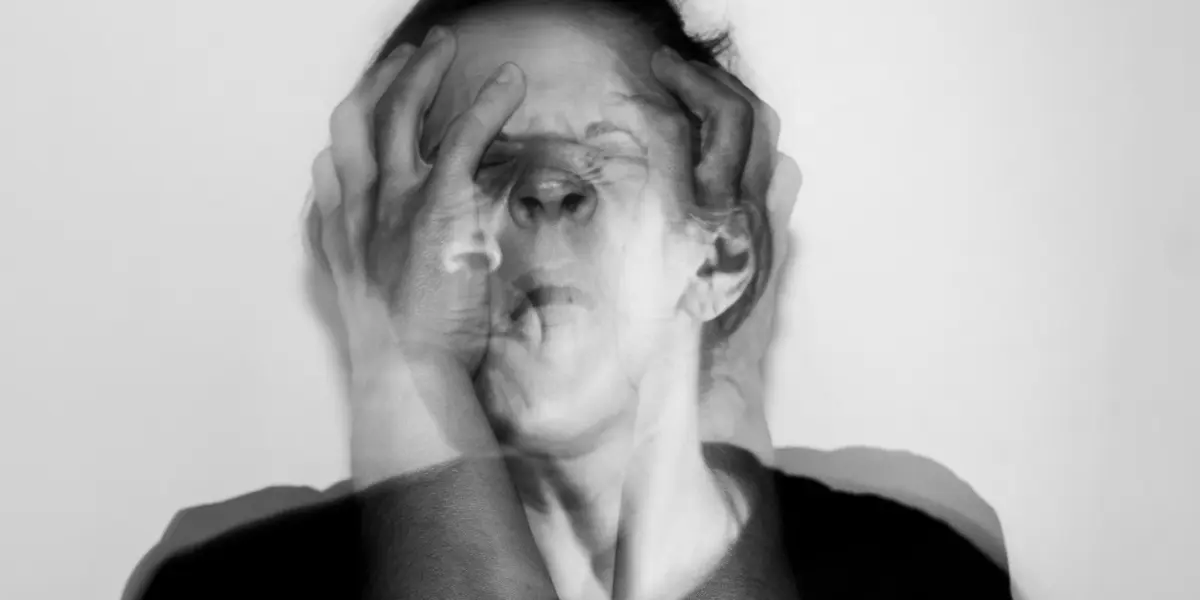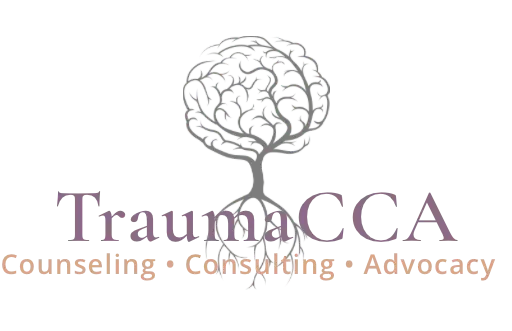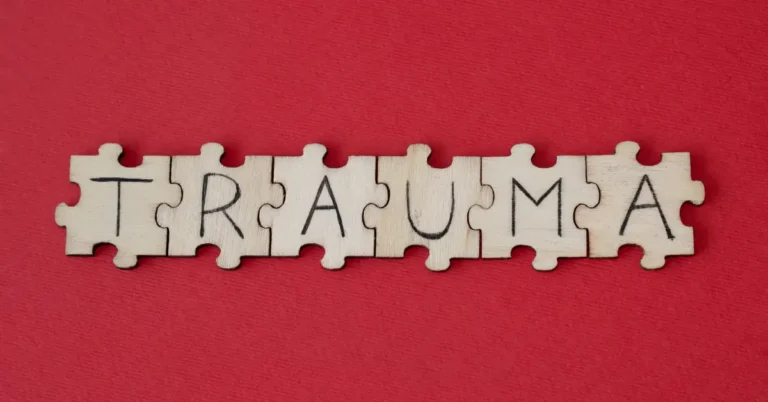Can Trauma Make Me Crazy?
Understanding Trauma’s Impact on the Mind.

Contents
- 1 You’re Not “Crazy.” You’re Carrying What Hurt You.
- 2 What we call “crazy” is often unprocessed trauma
- 3 Why “Crazy” Isn’t the Right Word—But We Still Feel It
- 4 What Trauma Looks Like in Everyday Life
- 5 You’re Not Alone—Even If It Feels Like It
- 6 Why trauma responses get misdiagnosed—or dismissed
- 7 What’s Really Going On In Your Brain and Body
- 8 You’re not alone—and you’re not beyond help
- 9 Why trauma feels like crazy: The metaphor of a tripped fire alarm
- 10 When the Labels Become Wounds
- 11 A Grounding Practice for When You Feel Like You’re Losing It
- 12 You Are Not Beyond Help. You Are Becoming.
You’re Not “Crazy.” You’re Carrying What Hurt You.
Ever found yourself spiraling after a loud sound, a confusing argument, or a minor rejection—and then immediately judging yourself for being “too sensitive” or “overreacting”? Maybe you’ve even whispered to yourself, “Am I going crazy?”
If that question lives quietly (or loudly) in your mind or your bones,
if you’ve ever looked in the mirror and not recognized yourself in the aftermath of your own reaction—
you’re not alone.
And more importantly—
you’re not crazy.
Many trauma survivors carry a fear that their pain makes them unstable, dangerous, or fundamentally unwell. But what you’re experiencing isn’t insanity. It’s survival. You are carrying things you weren’t meant to carry alone.
You’re responding to things that were never supposed to happen. You’re trying to feel safe in a world that hasn’t always been.
That doesn’t make you unstable. It makes you human—and deeply impacted.
What we call “crazy” is often unprocessed trauma
Trauma can mimic mental illness, but it stems from injury—not identity.
When something in your environment triggers a memory your body hasn’t been able to safely process, your nervous system reacts as if the danger is still present—even if your rational brain knows you’re “fine.” This is not irrational. It’s adaptive.
Let’s break this down gently.
Symptoms of trauma that feel like “crazy”:
• Dissociation or zoning out in conversations
• Crying suddenly or “over nothing”
• Feeling emotionally flooded and unable to calm down
• Explosive anger or withdrawal during conflict
• Obsessively rehashing interactions or preparing for worst-case scenarios
These are not proof that you’re unstable. They’re proof that your system is overwhelmed and doing its best to protect you.
Why “Crazy” Isn’t the Right Word—But We Still Feel It
Let’s be honest.
Most of us grew up in environments where emotional pain was ignored, minimized, or mocked.
We were told:
“You’re too sensitive.”
“Stop crying!”
“You just want attention.”
“You’re overreacting.”
So now, when your heart races for no reason… when you feel like you’re “too much” for the people around you… when you shut down or lash out and don’t even know why— you assume it’s a flaw. A defect. Evidence that something is wrong with you.
But what if it’s not?
What if what looks like “crazy” on the outside is actually a sign that something inside you is still fighting to feel safe?
What Trauma Looks Like in Everyday Life
Not everyone who carries trauma has a diagnosis.
Some of us are walking around high-functioning, productive—and quietly suffering.
You might not have had “big trauma” like war or assault. Maybe it was subtle, persistent emotional neglect. Maybe it was a household where feelings weren’t allowed. Maybe it was growing up with instability, criticism, or fear.
And now?
You rehearse conversations before they happen.
You replay every social interaction in your head for hours.
You get flooded with emotion out of nowhere.
You get mad at people for not meeting needs you were never allowed to admit you had.
You can’t relax. You don’t know how to.
These are not signs that you’re broken. They are evidence that you were never fully safe—and your spirit, your soul, and your body have not forgotten.
You’re Not Alone—Even If It Feels Like It
Complex trauma doesn’t always look like a movie scene.
It looks like:
People-pleasing until you’re empty
Never being able to rest unless everything is “done”
Being terrified of abandonment—even if you can’t admit it
Feeling dead inside—but still getting all your work done
Melting down over a dirty dish or silence in a text thread, and then hating yourself for it
If any of that feels familiar, you are not crazy. You are coping.
Your nervous system is trying to protect you from what hurt you—sometimes long after the danger has passed.
Why trauma responses get misdiagnosed—or dismissed
The world likes to label things it doesn’t understand.
If you’ve ever walked out of therapy or psychiatry feeling more confused than before—you’re not imagining things. Many professionals are still trained in symptom-based models that don’t always differentiate between trauma responses and psychiatric disorders.
Here’s what often happens:
• A survivor of chronic childhood neglect is labeled “borderline” without exploring attachment wounds.
• A spiritual abuse survivor is diagnosed with generalized anxiety but never asked about religious trauma.
• A complex PTSD sufferer is medicated for depression, but no one addresses their years of emotional suppression.
When trauma is overlooked, treatment can feel invalidating, even retraumatizing. You’re left managing symptoms without understanding the source.
So you go to therapy, or you talk to a doctor, and you walk out with a label. “Borderline.” “Anxious.” “Depressed.” Sometimes the label fits—and sometimes it feels like another box that can’t hold the full weight of your story.
What most providers miss is that trauma doesn’t always show up in a way that’s easy to diagnose. It lives in your attachment patterns, your tolerance for closeness, your ability to say no without guilt, your trust in your own perception.
When these things get pathologized instead of explored, we end up managing symptoms rather than healing stories.
What’s Really Going On In Your Brain and Body
Trauma changes how your nervous system functions—not who you are.
When you experience overwhelming or chronic stress without enough safety, your body adapts in real-time:
• The amygdala (alarm system) becomes hypervigilant
• The prefrontal cortex (thinking part) shuts down under stress
• The hippocampus (memory processor) struggles to organize time
This isn’t you being irrational. It’s your body saying: “Something hurt me, and I need to stay safe.”
Here’s the crucial reframe:
Your trauma reactions are not malfunctions; They are adaptations. Your emotions are not burdens; they are messages.
Instead of asking, “What’s wrong with me?” try asking, “What happened to me—and how is my body still protecting me from it?”
You’re not alone—and you’re not beyond help
Feeling out of control doesn’t mean you’re broken. It means you need support.
Trauma healing isn’t about “fixing” you. It’s about helping your system feel safe enough to stop sounding the alarm. That takes time, gentleness, and often community.
Some of us never had a name for what happened. We just knew we were different—too much, too intense, too afraid. The truth is, you were never “too much.” You’re just carrying a lot.
Here’s what they might not have told you:
Trauma reshapes the brain.
It rewires the nervous system.
It’s not about what’s wrong with you. It’s about what happened to you.
We were created with built-in defense mechanisms for when something overwhelms you and there isn’t enough support or safety to process it, your systems are programmed to survive.
And they do a damn good job.
But now, the alarms are still going off. The body is still bracing. The mind is still scanning.
It’s self-preservation.
And while those adaptations might no longer serve you, they came from a place of ancient wisdom—your system’s deep, fierce loyalty to keeping you alive—your God-given survival instinct.
Why trauma feels like crazy: The metaphor of a tripped fire alarm
Trauma doesn’t distort reality—it magnifies threat perception.
Imagine your nervous system is like a fire alarm in a building. A healthy alarm only goes off when there’s smoke or fire. But if you’ve survived trauma, your alarm may now respond to burned toast like it’s a five-alarm blaze.
This doesn’t mean you’re “irrational.” It means your internal alarm system has learned to err on the side of survival.
Even small cues—like a certain tone of voice or a dismissive glance—can ignite a full-body response. Your pulse races. Your breath shortens. You might freeze or lash out or dissociate.
Suddenly, your body says: Danger. Even if your brain knows everything’s “fine.”
This is not crazy. This is conditioning.
And here’s what’s even more important to know:
You can recalibrate that alarm system, not by force—you can’t logic your way out of this—but through intentional safety, compassion, and consistency.
When the Labels Become Wounds
It’s one thing to survive what happened. One of the quietest losses in trauma recovery is realizing how long you misunderstood yourself.
It’s another to survive the aftermath of how others misunderstood your pain as well.
Being called crazy, dramatic, unstable, manipulative, narcissistic, or needy—these words stick.
And for many survivors, they become an internal monologue:
“I shouldn’t feel this much.”
“I ruin everything.”
“I’m hard to love.”
But the truth is:
You aren’t manipulative. You were trying to feel safe in unsafe places.
You aren’t broken. You were abandoned by systems that should’ve known better.
You aren’t needy. You were never allowed to voice your needs.
You aren’t crazy. You were courageous — surviving without a map.
Grieving this can be its own spiral. But on the other side is something fierce and freeing: Self-compassion. Self-trust. Self-love. And this understanding eventually spreads to others as well.
A Grounding Practice for When You Feel Like You’re Losing It
When your mind starts spinning and your chest tightens and you don’t even know what set it off, try this:
5–5–5 Safety Check
Name 5 things you can see
(The texture of your wall, a plant, the light coming through the curtain…)
Touch 5 surfaces or textures (Your sleeve, the ground under you, a mug…)
Name 5 truths that remind you of who you are (Your name. A moment you felt brave. A lyric that speaks to you. Something you survived. A person who believes in you.)
This isn’t about finding and processing core wounds. It’s about helping your body realize:
“I’m here. Not there. It’s now. Not then. I am safe enough to stay. I am safe enough to breathe.”
You Are Not Beyond Help. You Are Becoming.
Healing is not about fixing who you are.
It’s about finally being allowed to feel what no one helped you carry.
Whether your trauma was subtle or severe— whether it’s a constant hum or a scream in your head— whether you have words for it or not yet—
You deserve healing. You deserve to know yourself apart from your pain. You deserve a world that doesn’t just medicate the symptoms, but listens to the whole story.







2 Comments